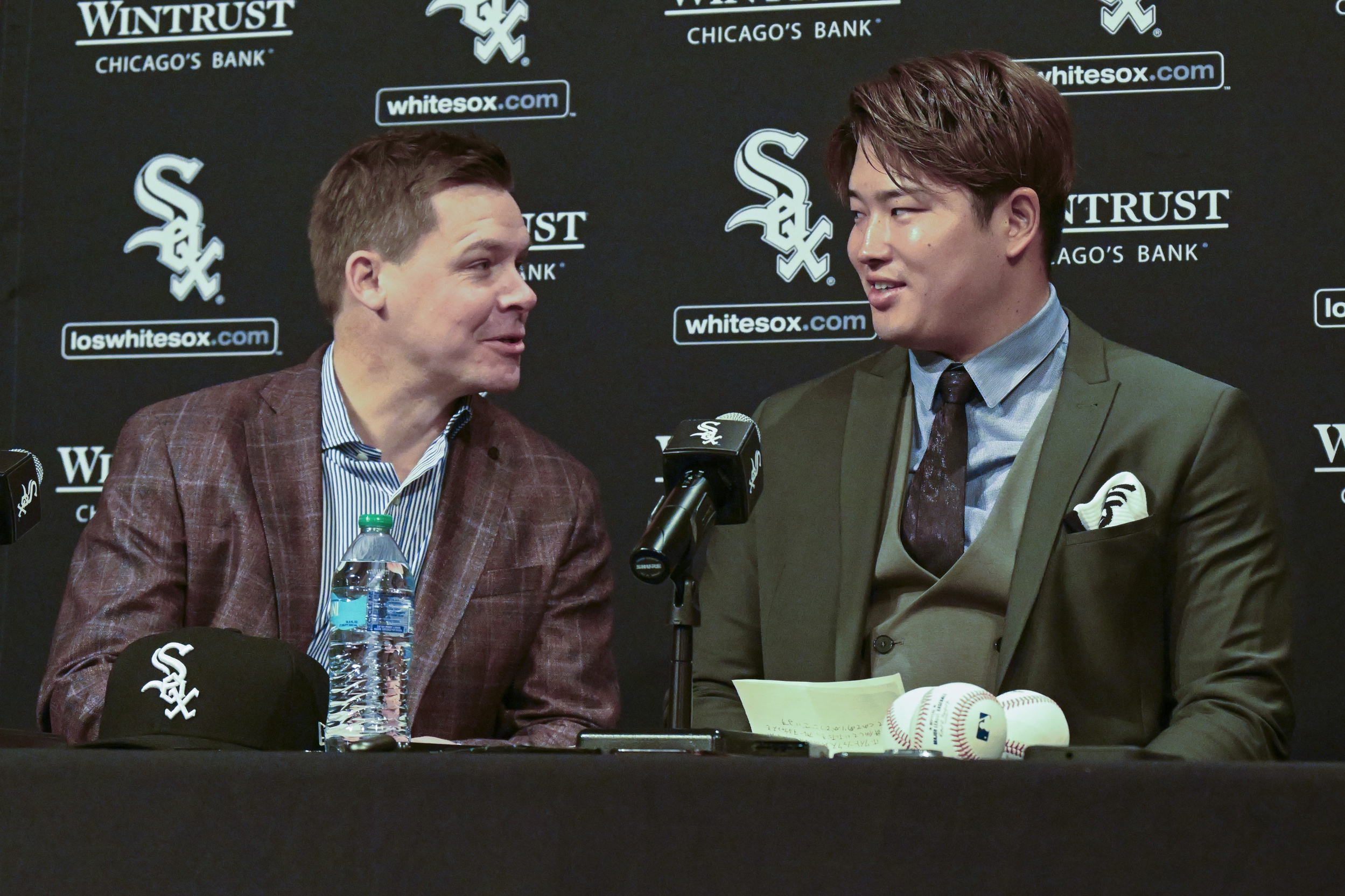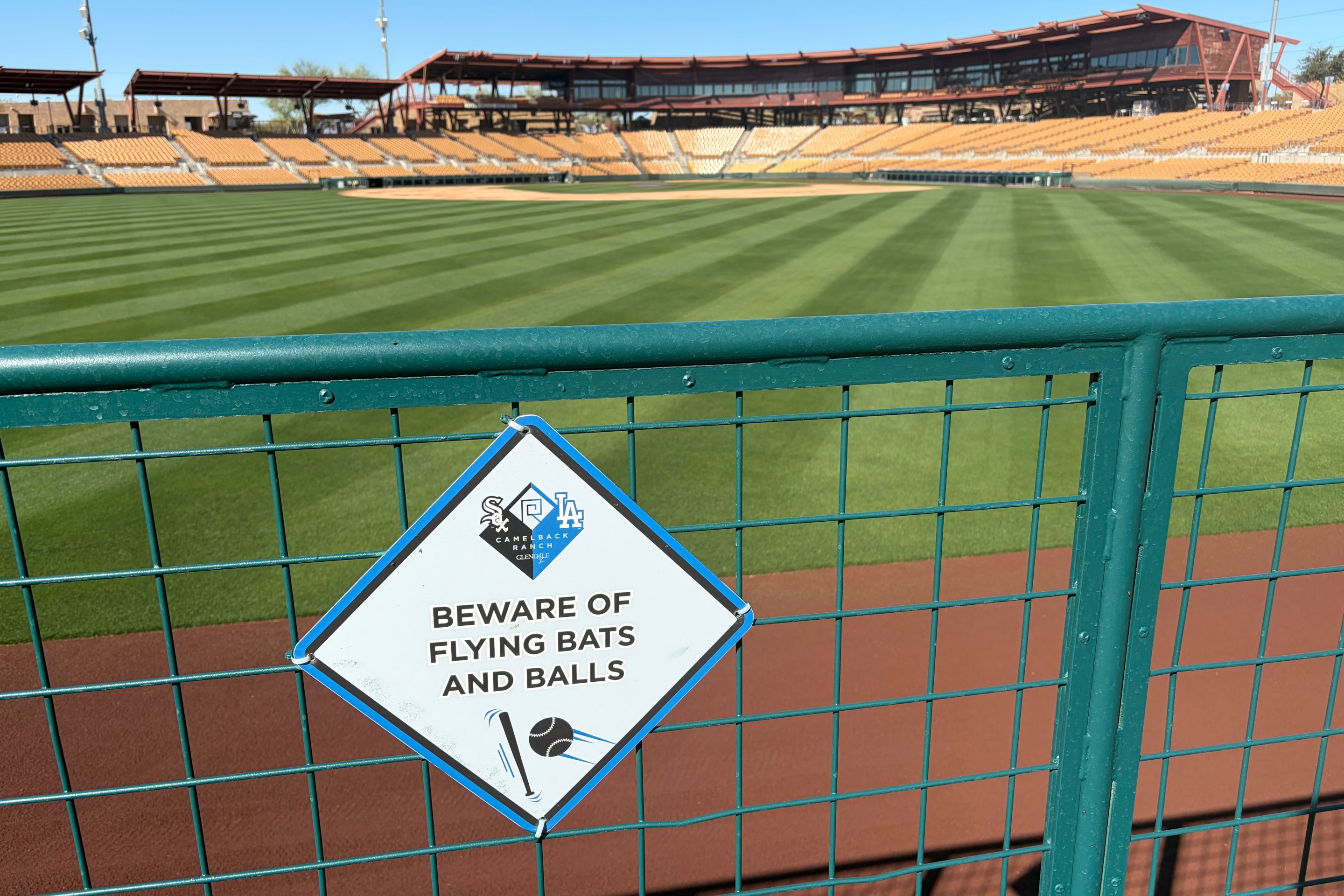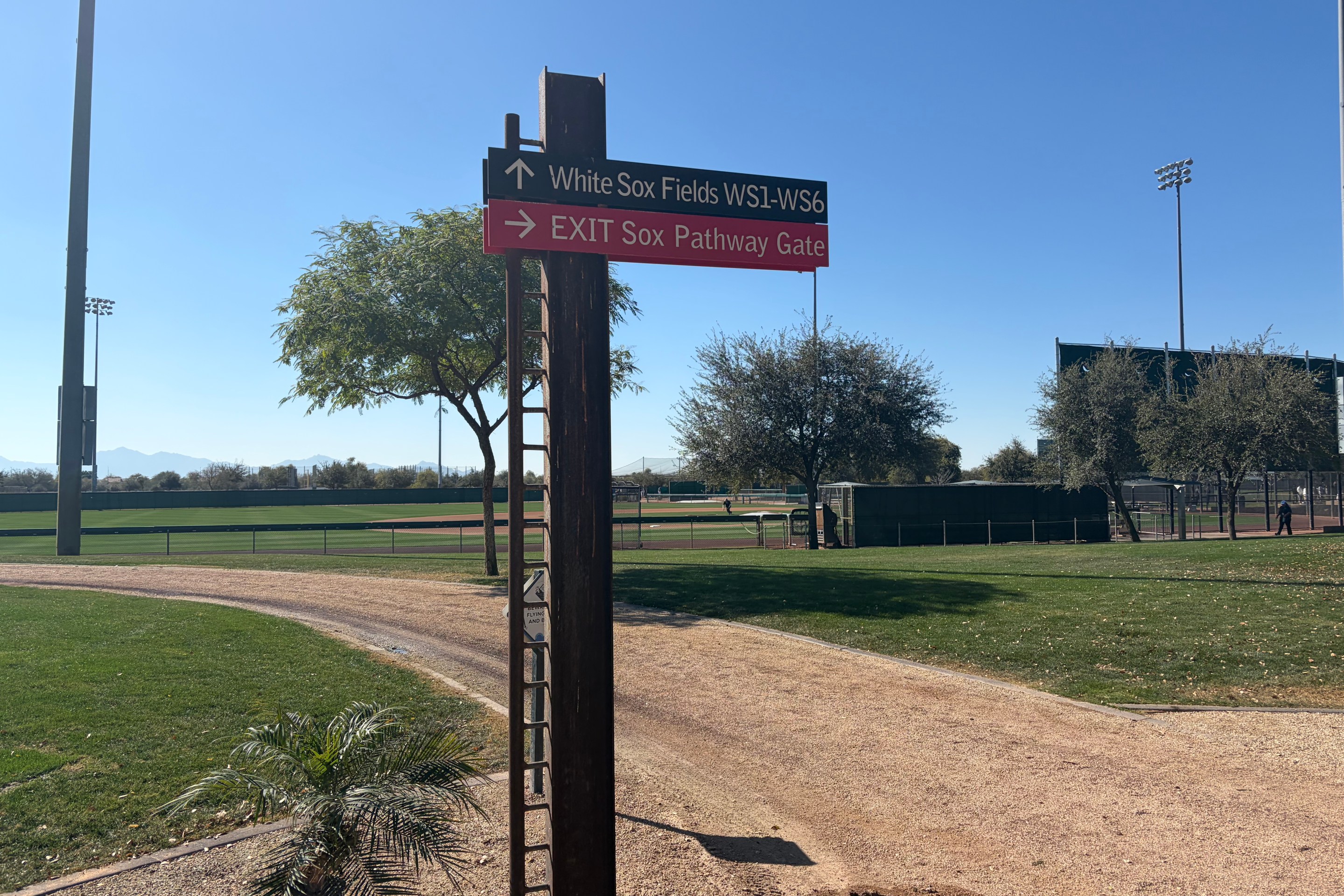After the conclusion of the 2008 season, Kenny Williams had to decide whether to offer arbitration to Type A free agent Orlando Cabrera. It was a more complicated decision that most anticipated.
The White Sox traded Jon Garland for Cabrera two weeks after re-signing Juan Uribe. It was somewhat confusing, because all of a sudden, Williams had two shortstops, two third basemen and little else. Cabrera did represent two draft picks, though, and Garland did not, so that much made sense.
When he showed up to spring training, the media asked both sides about an extension. It seemed like it could happen; Cabrera held the reputation of being one of the leaguer's headier players and strongest leaders, which would make him a perfect on-field general for his former shortstop manager.
Both sides had no problem letting the 2008 season play out. The generally accepted plan:
- Cabrera would have a fine season and give the Sox what they needed.
- The Sox would offer arbitration, and make a cursory effort to re-sign him.
- Cabrera would sign a bigger deal elsewhere.
- The Sox would take the picks.
Cabrera completed the first step. His offensive numbers lagged a little across the board, but he played a steady shortstop and helped the Sox win the AL Central.
Alas, the relationship between Cabrera and the rest of the Sox was strained at best after Cabrera called the press box to change a scoring decision in May, and Ozzie Guillen called him out. The media (mainly Joe Cowley) enjoyed picking at him, Jermaine Dye (wrongly) screamed at him for stealing third in a dugout dispute, and he ripped his teammates for playing weak-hearted baseball down the stretch.
Underneath it all, the United States economy slid into recession it has yet to escape. Combine the down market with the acrimony, and offering Cabrera arbitration had previously unforeseen risks.
The White Sox had no plans for him, and they let him know as much. They penciled in Alexei Ramirez at shortstop for 2009 by early November and let Cabrera know he would be a bench player if he returned, and he'd make for one costly utility infielder. Two Mark Teahens, to be exact.
Williams bet that Cabrera disliked the Sox as much as the Sox disliked him. They offered him arbitration on deadline day (Dec. 2), and waited for Cabrera's decision. He likely would have made $9 million, if not more, had he accepted arbitration, which would have been more lucrative than elsewhere, at least for the 2009 season. His Type A status, as well as the down economy, limited his marketability.
But in the five-day window when Cabrera had to make a decision, Edgar Renteria signed a two-year, $18.5 million contract with the San Francisco Giants on Dec. 4.
Renteria played the same position as Cabrera, and while he's 21 months younger, he was coming off a far worse 2008 season for the Detroit Tigers. And on top of that, Cabrera and Renteria did not care much for each other due a Colombian business deal gone bad.
An athlete is already competitive. Add in an off-the-field rivalry, and there was no way Cabrera was going to settle for a lesser contract and a lesser role when he had a better year. He declined arbitration, and the White Sox received the draft picks.
Little did he know that Brian Sabean misread the shortstop market like Williams did the relief market when he signed Scott Linebrink for $19 million the year before. Demand dried up until fears that Sabean set the prices failed to materialized. Cabrera had to wait until March to sign with the Oakland Athletics, whose first-round draft pick was protected. It was for one year and $4 million.
One year later, he signed with the Cincinnati Reds for $3 million. So he still hasn't made the $9ish million he would have earned if he accepted arbitration.
************************************
I was reminded of Cabrera's cautionary tale when I saw that John Buck reportedly agreed to a three-year, $18 million deal with the Florida Marlins on Tuesday.
Pierzynski's in a similar boat. Just like Cabrera, there are legitimate reasons why Pierzynski should accept arbitration if offered. He's a Type A, which will restrict his market to teams that can bear losing a first- (or second-) round pick. He's the most durable of the remaining catchers and has the lengthiest track record, but if the bottom falls out like it did for shortstops two years ago, he could have to settle for half of the $6 million he'd make through arbitration.
Still, I think this Buck contract has the power to drastically alter his financial weltanschauung.
There's no doubt Buck had a superior 2010. He set personal bests in plate appearances (437), batting average (.281), slugging percentage (.489), doubles (25), homers (20), RBI (66), WAR (2.9) and wOBA (.345). All top Pierzynski's 2010 output easily with exception of plate appearances.
He also set a career-high in OBP last season, but that's not worth bragging about.
It was .314, a number Pierzynski has topped in seven of his last 10 seasons.
Pierzynski gets plenty of (well-deserved) grief for his happy hacking, and it resulted in a career-worst OBP of .300 in 2010. Guess what, though -- add a point to it, and you have Buck's career OBP. Both catchers also posted walk rates below 4 percent, and Buck struck out 116 times to Pierzynski's 39.
Buck has a higher ceiling and 3 1/2 years of age in his favor. He also has an inferior track record and the same fatal flaws, which is why the reactions to the deal could be most charitably described as disbelief.
Dan Szymborski at Baseball Think Factory:
Florida Marlins - Signed C John Buck to a 3-year, $6 million contract.
For the prices, what's not to like? Buck's an average-ish catcher with pop but is ordinary defensively and makes too many outs but for $2 million a year, you can't expect to get...WHAT?! That's $6 million per season for John Buck? A 3-year, $18 million for friggin' John Buck?
I think I liked the Marlins better when they refused to spend any money. Did Jeff Loria get access to TARP funds? Or is he working for the Pentagon? I'd rather spend $10,000 for a toilet than $18,000,000 for John Buck.
Hey, Marlins, for $5 million, I'd defecate in your mailbox, which would still leave $13 million, more than enough to get a better catcher than John Buck.
Other reactions:
- The Boston Red Sox had an interest in Buck, but the Boston Globe's Peter Abraham said "not at that price."
- Hardball Talk's Aaron Gleeman said "Ramon Hernandez probably isn't very happy with his agent right now."
- FoxSports.com's Jon Paul Morosi said "this was a good day" for free-agent catchers.
So now that Buck and Hernandez are off the market, only Miguel Olivo -- who has just one postseason plate appearance, and grounded into a double play with it -- looks even moderately appealing amid the glut of low-OBP catchers (Victor Martinez ain't affecting this market). If you need an alpha dog behind the plate, Pierzynski is the only one who fits the bill.
************************************
We've debated at length about whether the Sox should offer arbitration to Pierzynski. It's fitting (and awesome) that the decision split our offseason planners right down the midde -- eight for, eight against.
I've been on the fence myself, but the Buck contract is the tipping point for me. The White Sox should offer arbitration, because Pierzynski's camp has to be thinking about a multi-year deal now.
That's not to say he'll get one, and that's why I started with the lengthy preamble about Cabrera's situation. Pierzynski is a Type A, Pierzynski has peers, and he could be on the outside looking in when spring training starts.
But, like I said, athletes are competitive, and they want respect. Pierzynski and Buck played in the same division for five years, and Pierzynski was better in four of them. Maybe he can't get Buck money, but he has to be thinking he's in the same league, and thus deserving of a minimum of two years.
OK, perhaps there's a slight possibility that Pierzynski might be happy with one year and $5-6 million. I'm just not seeing it. That would go against how athletes (and agents) usually regard these markets, and it also wouldn't jive with the way Pierzynski sniped at anybody who suggested the Sox needed help at the position.
It is a gamble to offer arbitration, but it's one worth taking, because I think Pierzynski's going to take the gamble on his end. Maybe he'll end up getting screwed in the deal, but hey -- it wouldn't be the first time John Buck hit a White Sox where it hurts. Maybe Gordon Beckham can try to burp him this time.
************************************
Arizona Fall League:
- Friday: Scottsdale 6, Peoria 4
- Jared Mitchell went 0-for-3 with a strikeout, but also walked and stole two bases.
- Eduardo Escobar went 1-for-5 with an RBI and a strikeout.
- Anthony Carter pitched a scoreless inning, striking out one and allowing a hit.
- Saturday: Phoenix 8, Peoria 1 (7 innings)
- Escobar went 0-for-3 with a strikeout.
- Mitchell drew a walk over two plate appearances.
- Johnnie Lowe allowed four runs on four hits and three walks over three innings, striking out three.
- Monday: Scottsdale 9, Peoria 4
- Escobar went 1-for-4 with a triple, an RBI and two strikeouts.
- Mitchell went hitless in three at-bats, striking out twice.
- Tuesday: Peoria Javelinas 15, Peoria Saguaros 2
- Charles Leesman: 1 IP, 1 H, 2 ER, 2 BB, 1 K, 1 HR
- Mitchell repeated his Monday line.
- Escobar went 0-for-2 with a walk.





